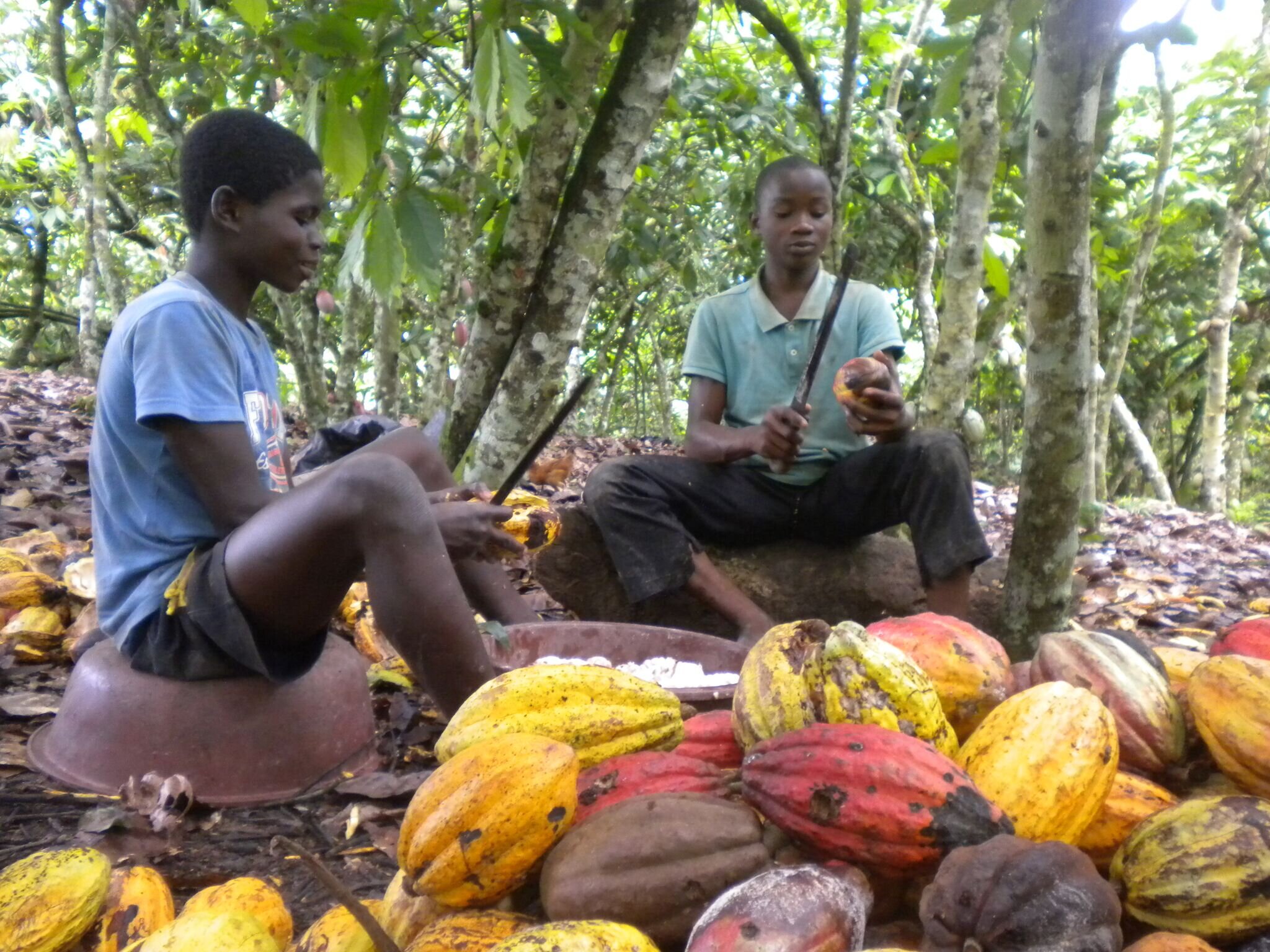How cheap is that chocolate in the window?- Ayn Riggs, Director of Slave Free Chocolate.
On December 1st the oral arguments for Doe. vs. Nestlé and Cargill will be presented to the Supreme Court of the United States. This case goes beyond simply seeking justice for children who were trafficked and held in slavery It will determine if American corporations are entitled to receive immunity if human rights abuses occur in their supply chains outside of the U.S. If Doe (boys, trafficked in from Mali and sold into slavery to work the cocoa farms of Côte d’ Ivoire) wins, then the United States will show the world that the US is on the side of the high ethical standards an humanity that we promote in our values. If Nestle and Cargill win, we are telling the world that slavery is trending again; turn a blind eye and enjoy consumer chocolate and other consumer goods at rock bottom prices.
At first glance it might be easy to side with these corporations. Maybe, we hope, these large companies were unaware of the fact that child slaves were used to harvest the cocoa that ends up in our chocolate bars. Go to any of the big chocolate company websites (Nestlé, Mars, Hershey Cadbury etc.) and you will find whole sections stating their ethical stance on sustainability. You will find photo after photo of happy farmers and smiling children donning school uniforms in company-built schools with big smiles on their faces and schoolbooks tucked under their arms. You will find they are part of an NGO called the World Cocoa Federation that is making all of this happen. Nothing looks amiss. Why would one question this? Why would they go through all of this work to deceive?
The answer is profit. Most of the big chocolate companies have shareholders. A CEO’s number one priority is profit. Any wrinkle in an effective profit strategy and the CEO will likely lose his or her job. The horrors of illegal child labor and child slavery were exposed in the late 1990s. , Congressional Representative, Eliot Engel, suggested a stamp on chocolate bars; “Child Slavery Free” so consumers would know what they were buying. To thwart this legislation, big chocolate companies including but not limited to Mars, Nestle, Cargill, Hershey and Cadbury all signed a non-binding protocol (Harkin Engel Protocol) in 2001 in which they admitted to knowing that they were profiting off the backs of children who were not going to school, were far from emergency medical services, were working with dangerous pesticides and that many were being trafficked into the cocoa farms from Mali and Burkina Faso and sold as slaves. They promised to clean all of this up. They formed an NGO, the World Cocoa Federation, which would act as the vehicle of remediation. The problem is that they didn’t fund this properly, so it acted merely as a public relations platform by funding paltry initiatives to provide photo ops for websites, with an aim to keep investigative journalists and activists in the dark. Big chocolate has been playing a cat and mouse game with many informed and enraged consumers, activists, and investigative journalists for the last 20 years. Sadly, they are winning. According to the U.S. Department of Labor, the number of exploited children has only increased since the Harkin-Engel Protocol was signed.
I’ve watched all of this closely for the last 15 years. I founded Slave Free Chocolate.org to bring consumer awareness to the inhumane treatment of these two million children.
Fair-trade initiatives have the right idea but have failed to make a large enough dent to bring forth any change. Remediation has to include the large companies profiting from the situation. They have the money and power to make a difference and fix it.
Now we are right up on the end of Doe. vs. Nestlé and Cargill. What it comes down to is clear. Are we as a country going to be patting the backs of corporations for sticking to the strategy that puts a few more pennies in shareholder’s pockets? Or we are going to lead by example that humanity counts; that children matter.
As consumers we DO have the power to help these children. It is time we use it. Write to the complicit chocolate companies and your legislative representatives. Let’s engage our hearts for this cause and our voices on our social media audiences. You can find a list of offending companies, more details of the situation, and other ways to make your voice count on SlaveFreeChocolate.org.
Ayn Riggs is the founder and director of Slave Free Chocolate, slavefreechocolate.org @slavefreecocoa on twitter.


